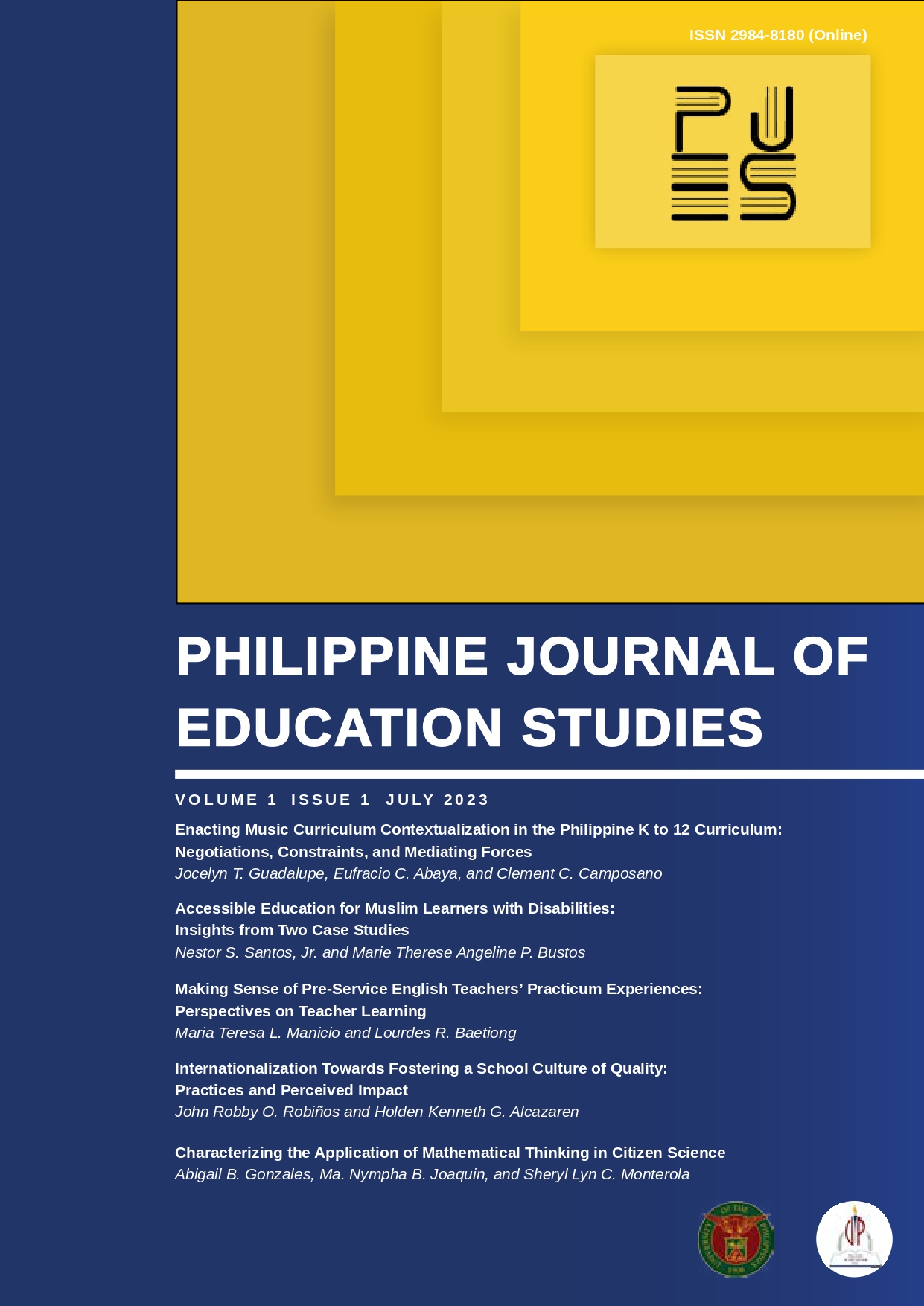Enacting Music Curriculum Contextualization in the Philippine K to 12 Curriculum: Negotiations, Constraints, and Mediating Forces
Abstract
This study problematized the K to 12 music curriculum contextualization policy, and the negotiations, constraints, and mediating forces experienced by selected music teachers in formal music education, given the interactions with informal and non-formal music education. This ethnography analyzed the experiences of 12 music teachers in a town with a long-standing community band tradition. Data were gathered through interviews, focused group discussions (FGDs), surveys, and classroom observations conducted over a seven-month period. Framed from the concept of “policy as practice” of music curriculum contextualization, the findings revealed the music teachers’ negotiations: music listening selections, immersion, and integrative teaching strategies; mediating forces: teachers’ policy understanding and music content knowledge; and constraints: standardized examinations and inadequate school music resources. The study concluded that music contextualization policy should consider practice-informed teacher negotiations on the ground, teachers’ mediating forces, and teacher-identified constraints. Recommendations included community dialogue, adaptations of community band practices in class, and a paradigm shift toward student-led learning and assessment.


